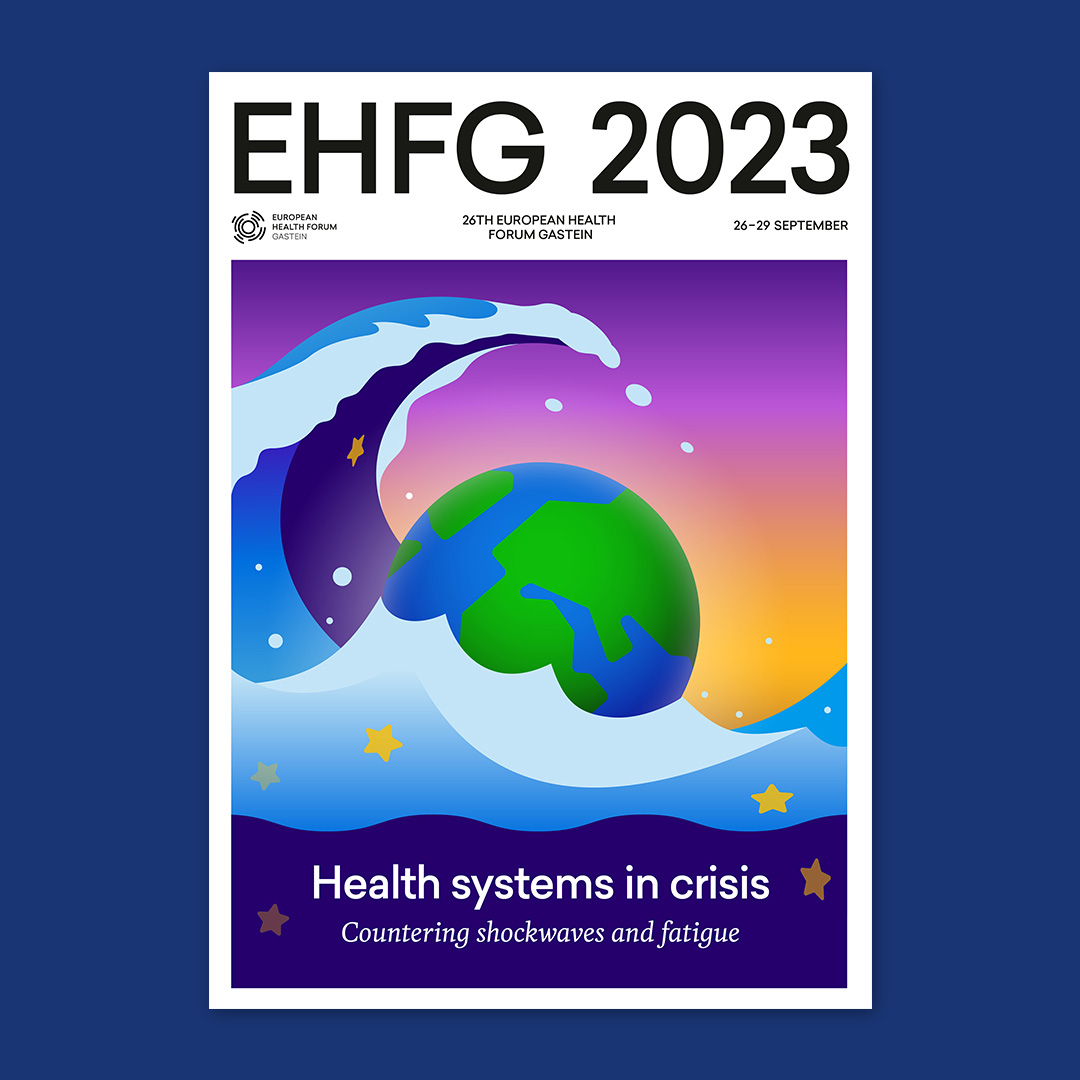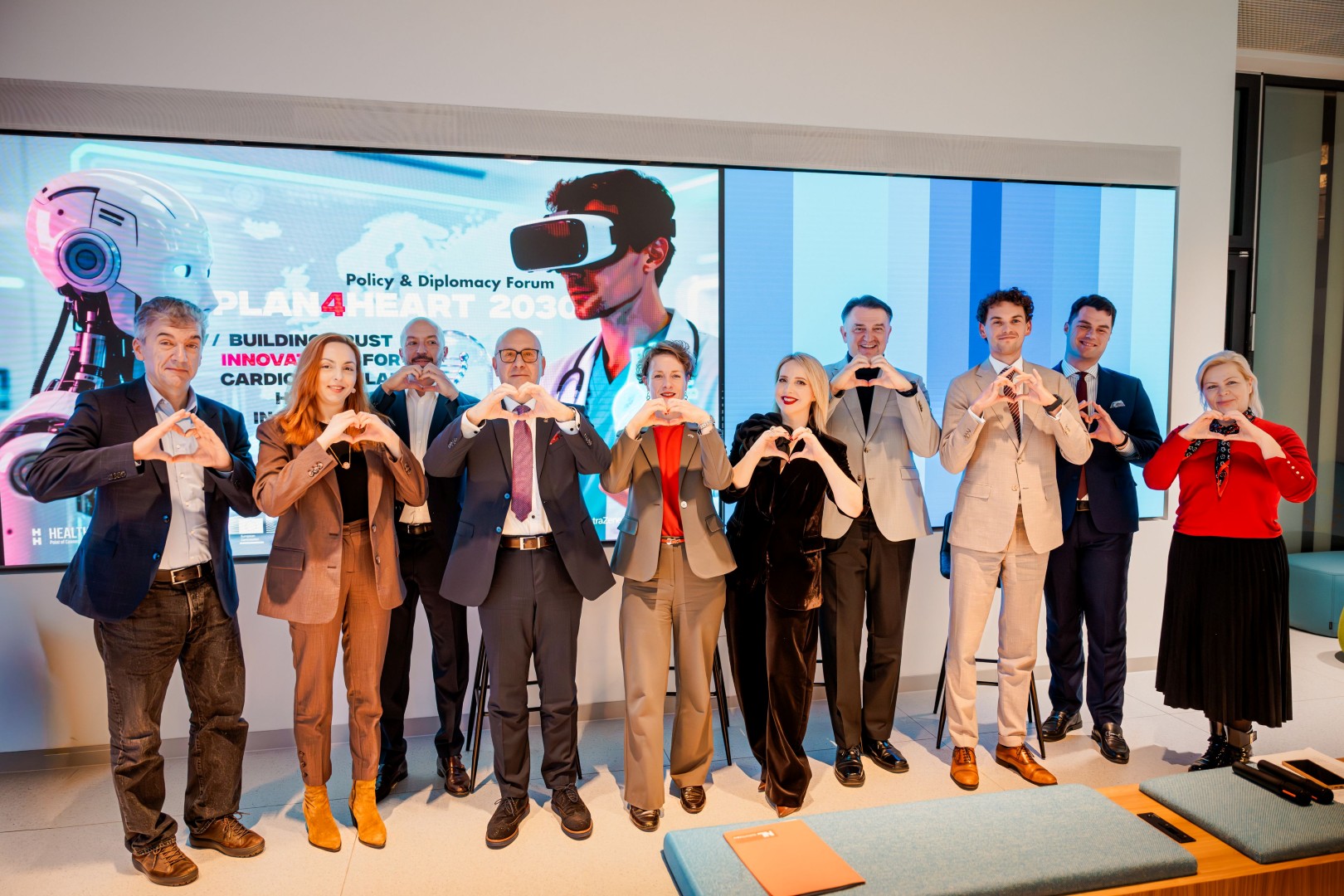European Health Forum Gastein 2023 welcomes you: „Health systems in crisis – countering shockwaves and fatigue“
ealth systems in Europe were facing significant problems pre-COVID, from underfunded primary and social care to workforce shortages and inequities in access to care, while addressing growing challenges such as ageing populations and the rise in non-communicable diseases. The ensuing permacrisis – including an ongoing pandemic, the war in Ukraine, the cost-of-living crisis, and the climate emergency – have only exacerbated the situation, stretching health systems, and in particular the health and care workforce, to their limits. Many workers have lost their lives, while others have suffered fatigue, exhaustion, and burnout. Health and care workers are essential to the operation of health systems, and their availability, accessibility, and quality are all determinants of expanding healthcare service coverage and the attainment of the fundamental right to enjoy the best possible standard of health. Health systems exist to protect people: shielding them from the risk of illness, and the possibility of financial ruin if they do fall sick. They serve as one of the cornerstones of both a thriving economy and society. And it is key that they (and their workforce) are well resourced, dependable, and steadfast in times of crisis.
However, while the pandemic shifted health up the priority list, the cycle of panic and neglect has already begun. The health community must continue to highlight why health and well-being are strategic assets in which to invest, reminding decision-makers that healthier, happier people drive healthier economies and a sustainable planet. Given that health is largely created and determined in other areas, the many systems and policies that influence health and well-being across different sectors must also be better streamlined.
At the European level there have been positive developments: policy work towards a true European Health Union; a new EU global health strategy, and the growing recognition of the importance of One Health approaches. But creating healthy societies also means taking concrete actions at Member State level to build more sustainable and shock-proof systems, in particular addressing the “great resignation” of the health and social care workforce as a key challenge impacting the sustainability of our health systems. We must also overcome the palpable sense of fatigue caused by a feeling that major challenges – such as the climate emergency – are beyond our power and control to influence.
Join us in Gastein and online from 26 – 29 September to discuss how to ride out the current shockwaves and how crises can help catalyse the development of new approaches to health system problems. Together, let’s co-create long-term sustainable solutions with actors in all sectors that support health and well-being!

Innovation for a resilient future
To achieve a resilient future, one in which we can make changes that generate long-term social and environmental benefits, innovation is a key enabler. We must therefore gain a greater understanding of the transformative potential of newly proposed solutions to the challenges we face and shed light on the controversies that surround them. In this track we will delve into and critically review the promise of AI tools to help provide safe and resource-efficient care, whilst also contributing to better working conditions for healthcare professionals. Sessions in this track will also investigate different ways of fighting the silent pandemic of anti-microbial resistance, examine best practice examples for making our healthcare systems greener, as well as discuss solutions to achieve better vaccine uptake and understand the impact of the climate crisis on marginalised and underserved communities. We also look forward to learning about the characteristics of the rare disease research and development ecosystem, and how the childhood cancer community can offer a blueprint for cross-border collaboration in the European Health Union.

Building shock-proof health systems
How can we build health systems that will not only withstand shocks, but have the flexibility to anticipate, adapt, and respond to emerging crises? Sessions in this track will concentrate on the importance of keeping health workers at the core of our endeavours, analysing trends in training, recruitment, and retention, in addition to how we can better collaborate on the international mobility of healthcare personnel. Furthermore, we will discuss the critical role of primary healthcare and of person-centred digital solutions in fostering health system resilience. Persisting inequalities between and within European health systems will be analysed, and ideas that countries can implement to make healthcare access more affordable both generally and for people at the periphery of our social systems will be explored. This track also includes a focus on mental health, exploring post-conflict mental health reforms, the mental health of young cancer survivors, and the specific issues affecting healthcare workers’ mental health.

Health policy at a crossroads
The crises we are facing have brought health to the forefront of the EU’s political agenda and led to positive developments, such as the establishment of a new EU Global Health Strategy and ambitious policy efforts towards a European Health Union. At the EHFG 2023, we will discuss how to uphold these advances and maintain the momentum for an ambitious union for health – including how health diplomacy can lead to improved health outcomes through better relations between stakeholders. Sessions will discuss the asks of the 2024 European elections, and we will ask EHFG participants to share their health priorities for the next European Parliament and Commission. We will examine the evolving role of national public health institutes in addressing health challenges, and anticipate dynamic debates around the ongoing revision of the EU pharmaceutical legislation, specifically considering availability, affordability, and access to medicines. We will also invite you to join us in an interactive exercise on the role of strategic foresight in addressing global public health threats in our interconnected world





